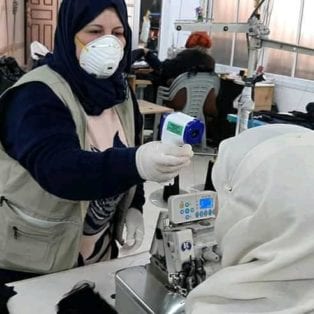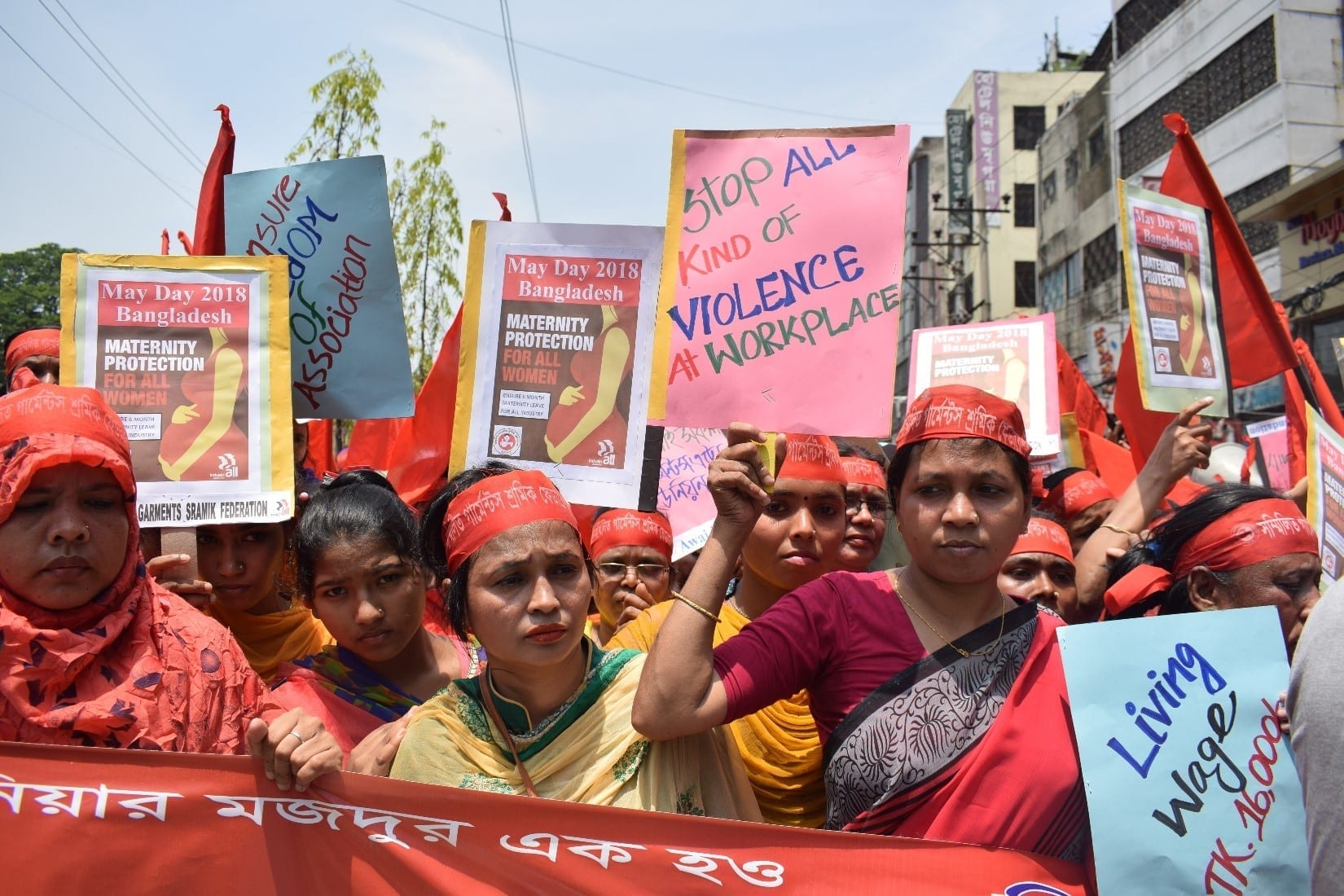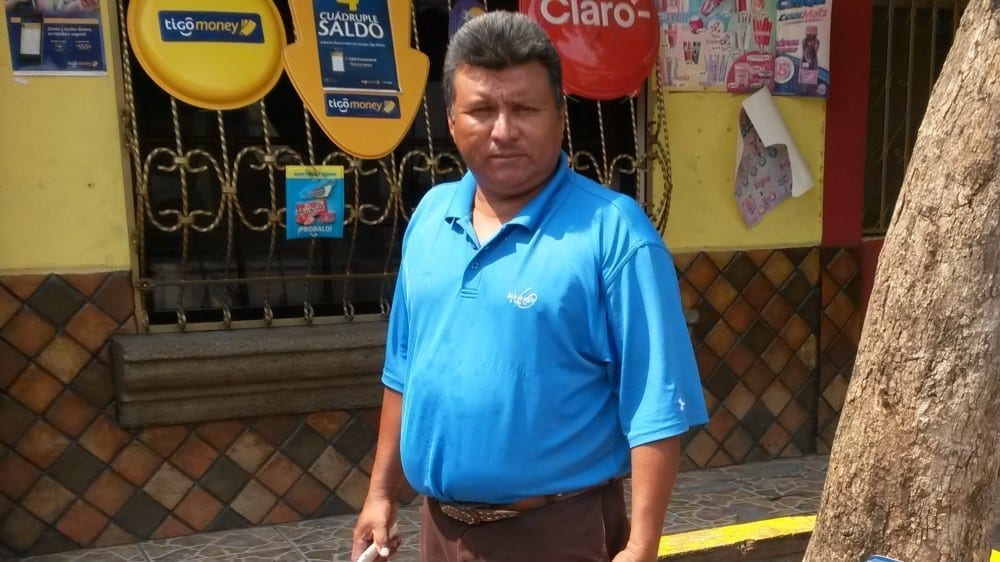Across the Middle East and North Africa, unions and worker associations are mobilizing to educate workers about their rights during the COVID-19 crisis, provide them with resources to protect themselves and their families, and push for fair treatment at the workplace....
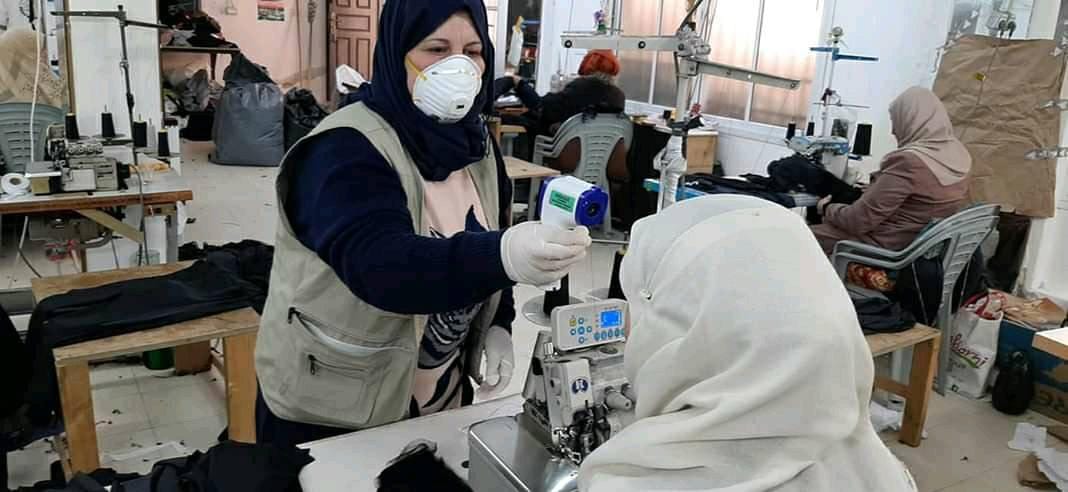
During the COVID-19 pandemic, members of the Palestinian General Federation of Trade Unions, a Solidarity Center partner, tested workers for fever. Credit: PGFTU
Each year, more than 2 million workers die on the job—more than 6,000 a day worldwide. Hundreds of millions more workers a year suffer from non-fatal job-related accidents and illnesses.
The global coronavirus pandemic highlighted and exacerbated the vast inequities facing working people as many risked exposure to the virus without protective safety equipment, tending to sick patients, staffing grocery stores and driving public transport.
In partnership with the Solidarity Center, unions negotiated stepped-up protections and improved wages for workers who risked their lives on the front lines of the crisis, and supported unions as they worked with governments and employers to ensure those furloughed or laid off during the pandemic received wages and social protections such as access to food distribution and unemployment compensation.
Around the world, the Solidarity Center supports networks of unions that are pushing for workplace health and safety measures, such as in Serbia, where unions created a national network of trade union activists to improve workplace safety and health monitoring, and bargain collectively with employers to expand such protections for all workers, regardless of whether they are union members.
On April 28, workers and worker rights activists like the Solidarity Center observe World Day for Safety and Health at Work, an annual day of remembrance for workers who died or were injured on the job and a day to renew the struggle for decent work—family-supporting wages, sick leave and other benefits and safe and healthy working conditions.
Bangladesh Garment Workers: New Blocks to Form Unions
In Bangladesh, garment workers often seek to form unions and worker associations to better protect against wage theft, unfair treatment and lack of health and safety protections, including large-scale safety threats like building collapses. Yet they increasingly are...
Global Groups Fear Safety of Honduran Union Leader
The International Trade Union Confederation (ITUC) and the Network Against Anti-Union Violence in Honduras are urging the government to drop all charges against Moisés Sánchez, safeguard his protection as a human rights defender under threat, and ensure he can freely...
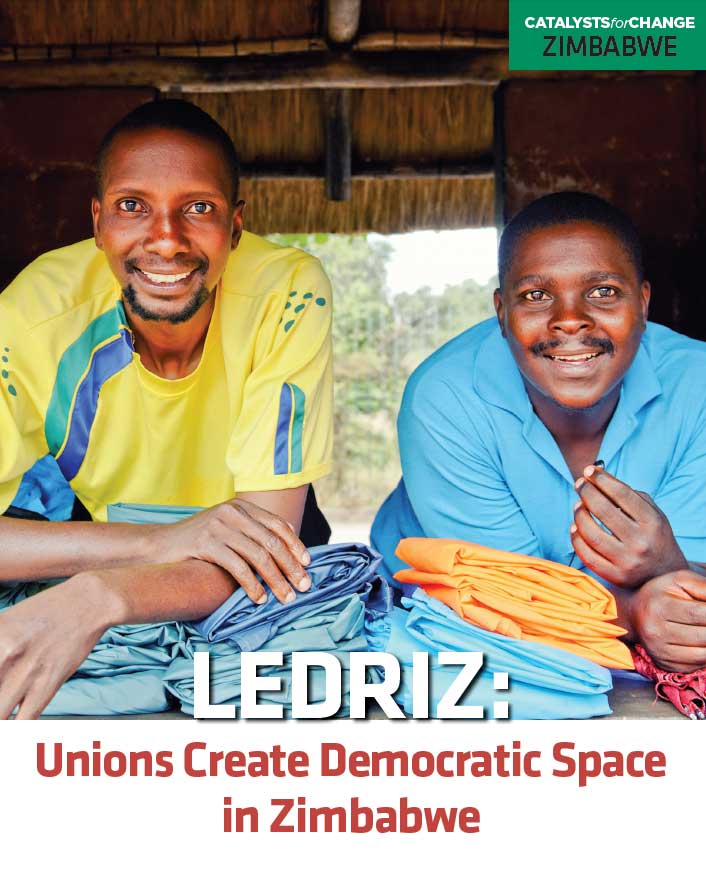
Unions Create Democratic Space in Zimbabwe (2013)
Unions in Zimbabwe are ensuring the concerns of working people are heard—while highlighting issues feeding into the nation's poverty crisis, a Solidarity Center report finds. English (PDF) Arabic (PDF) French (PDF) Spanish (PDF) Sources
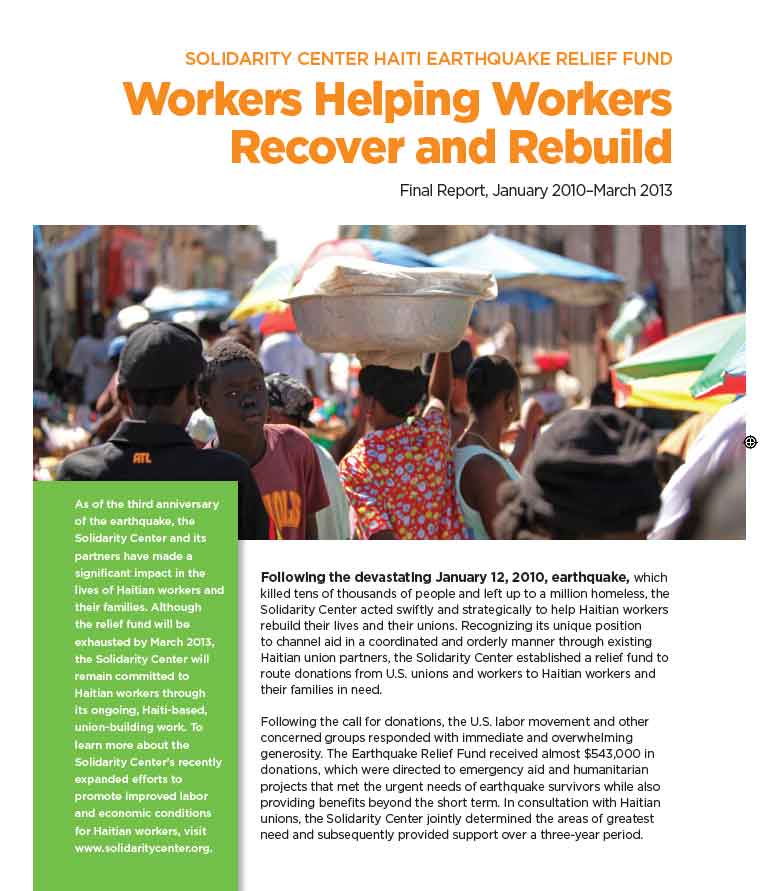
Solidarity Center Haiti Earthquake Relief Fund: Workers Helping Workers Recover and Rebuild. Final Report, January 2010-March 2013
Following the devastating January 12, 2010, earthquake in Haiti, the Solidarity Center established a relief fund to route donations from U.S. unions and workers to Haitian workers and their families in need. The final report on these efforts, released on the third...
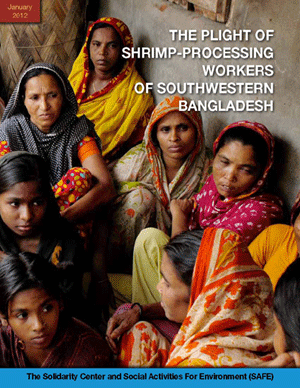
The Plight of Shrimp-Processing Workers of Southwestern Bangladesh (2012)
Bangladesh’s labor code addresses pay, working hours, and on-the-job conditions. However, in the shrimp-processing industry, the code is not being adequately enforced. Bangladeshi shrimp-processing workers—the majority of whom are women—still face inadequate health...
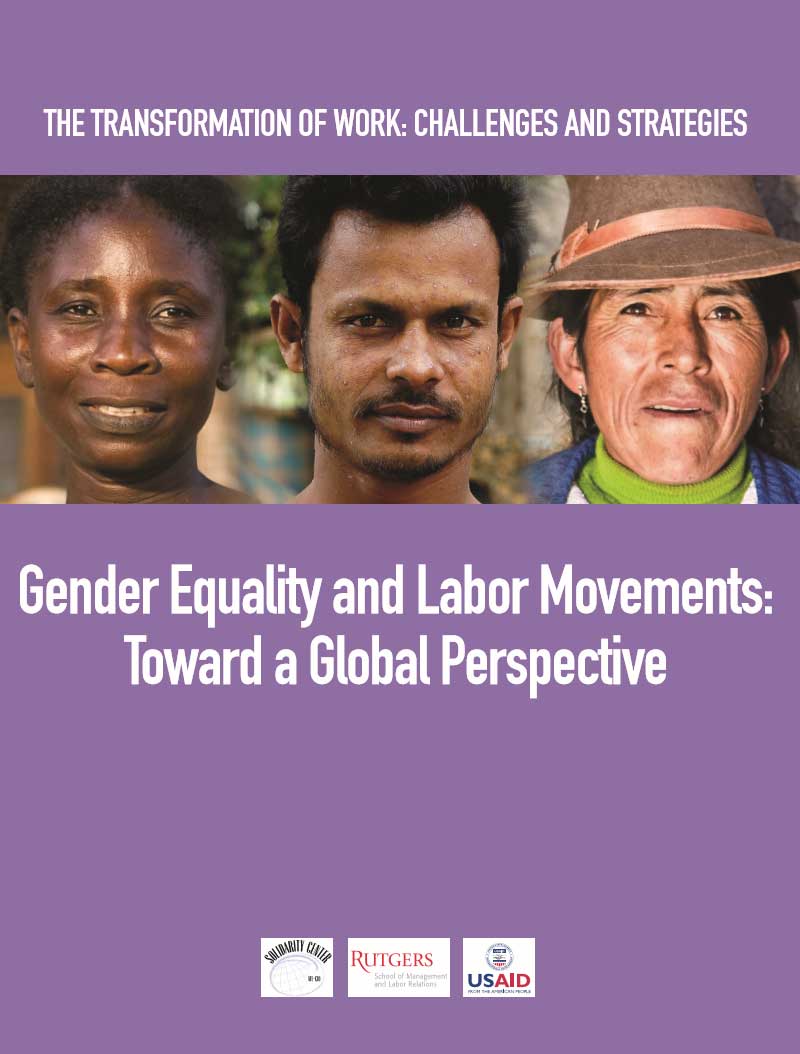
Gender Equality and Labor Movements: Toward a Global Perspective (Rutgers, 2012)
A critical review of the English-language research on gender equality and labor movements highlighting “best practice” case studies around the world most relevant to those engaged in building democratic and humane societies. This Solidarity Center report is part of a...
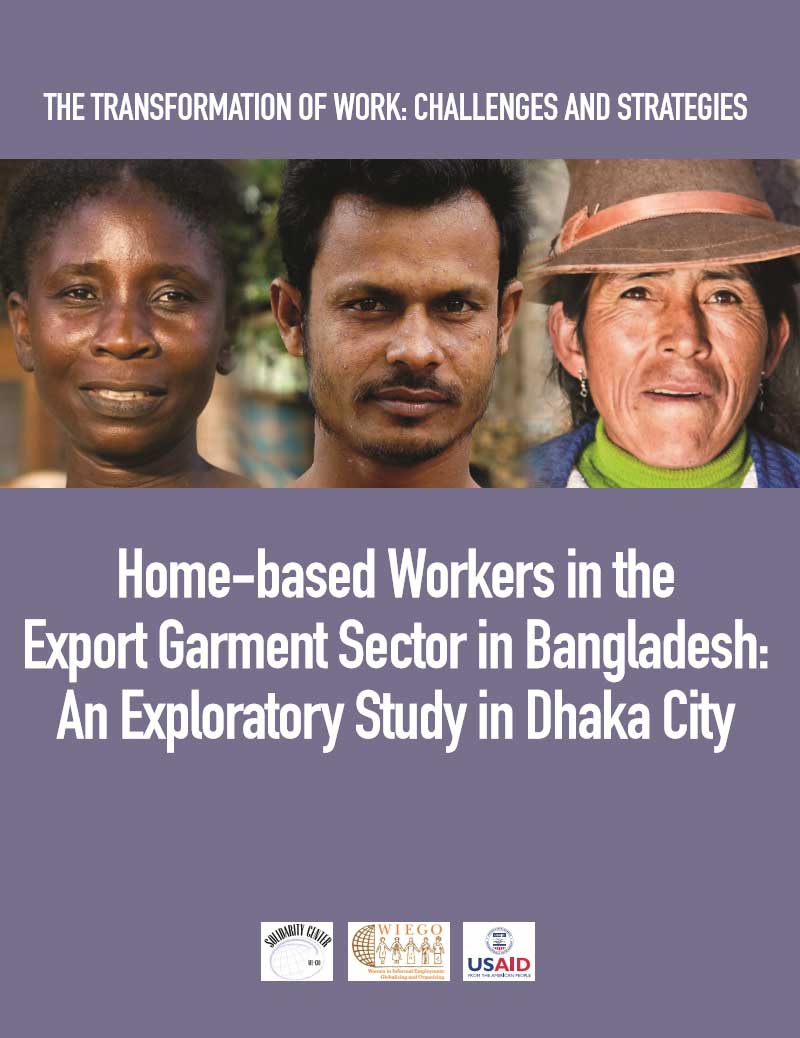
Home-based Workers in the Export Garment Sector in Bangladesh: An Exploratory Study in Dhaka City (Wiego, 2012)
Workers in the home-based export garment sector remain an invisible segment of the labor market, and this report is first step toward a systematic documentation of this phenomenon, with special emphasis on employment conditions, worker livelihoods and issues affecting...
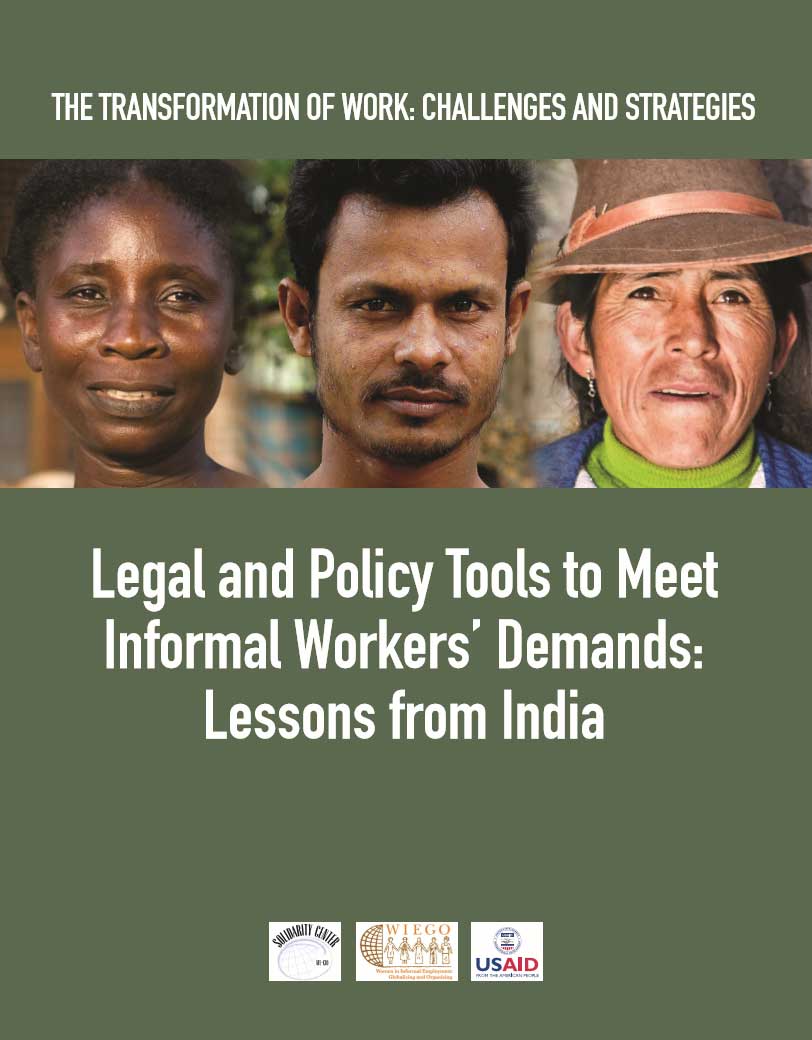
Legal and Policy Tools to Meet Informal Workers’ Demands: Lessons from India (WIEGO, 2012)
This report highlights key lessons from a WIEGO pilot project in India examining the nature of the informal economy and the way legal and policy tools can address the concerns of those working in the informal economy. This Solidarity Center report is part of a...

